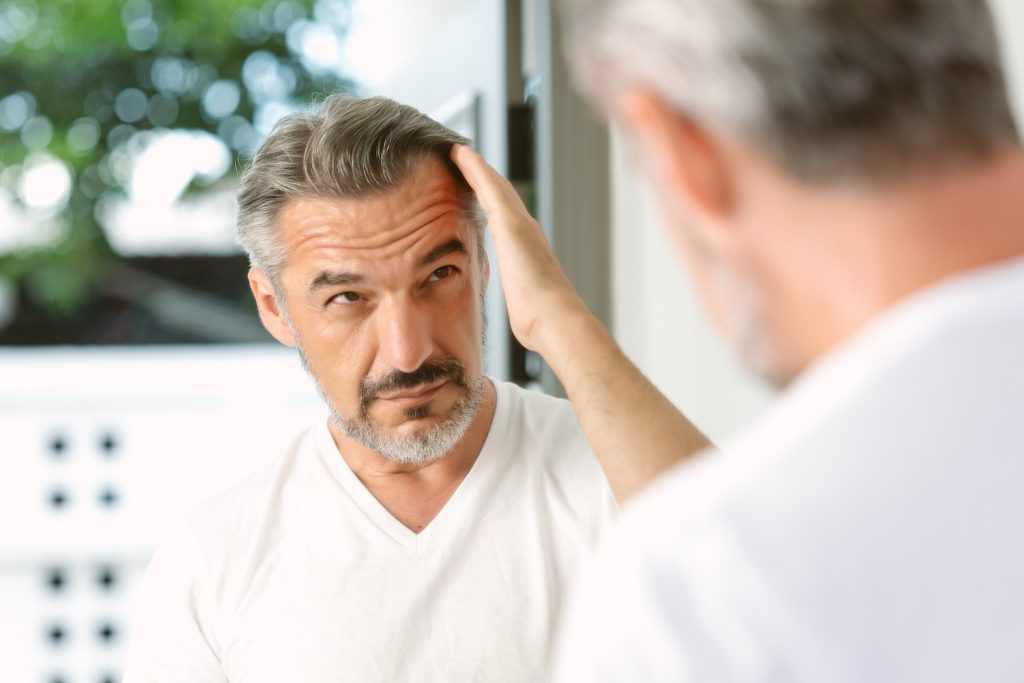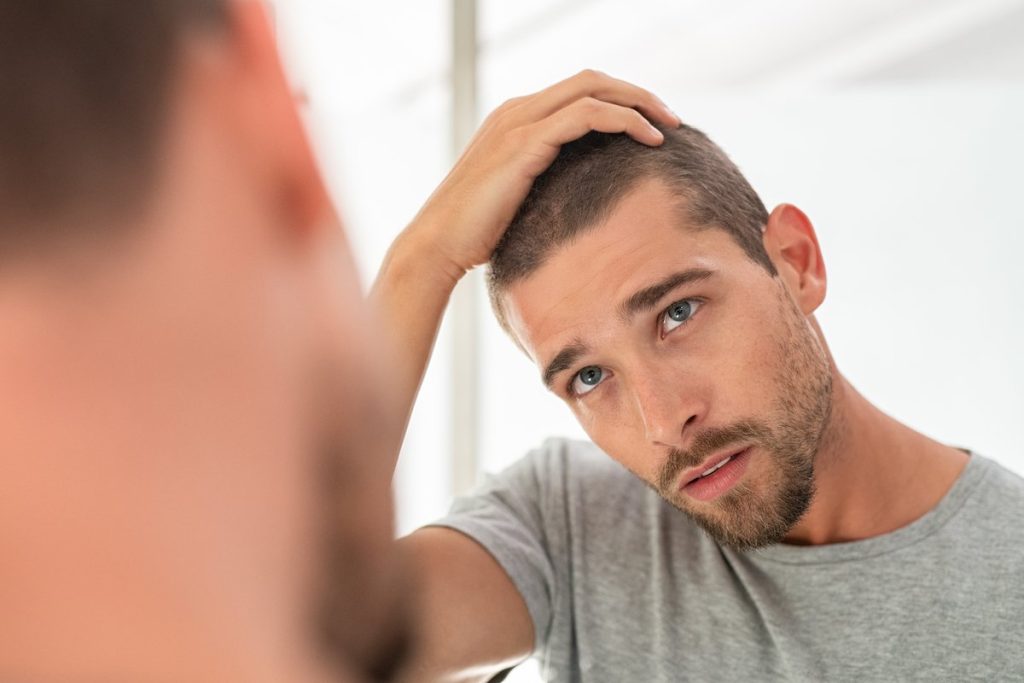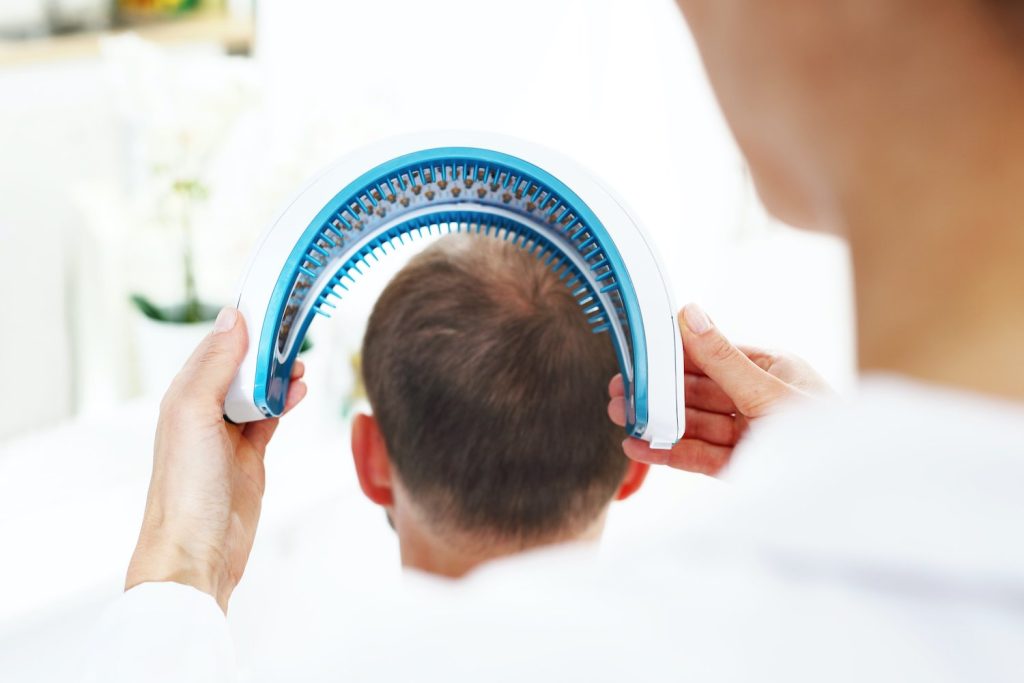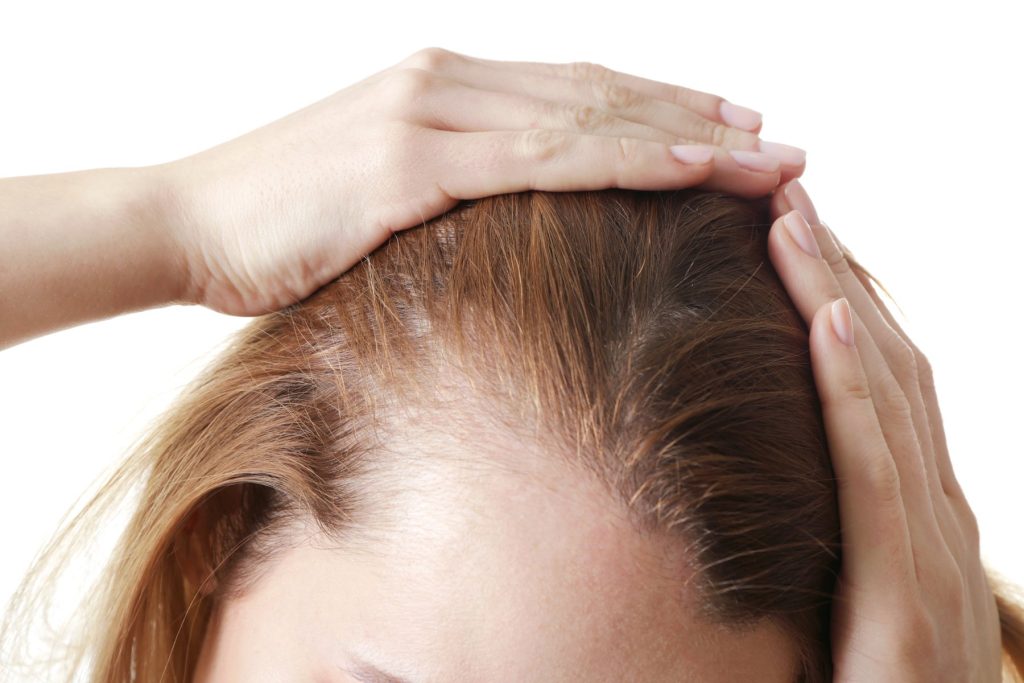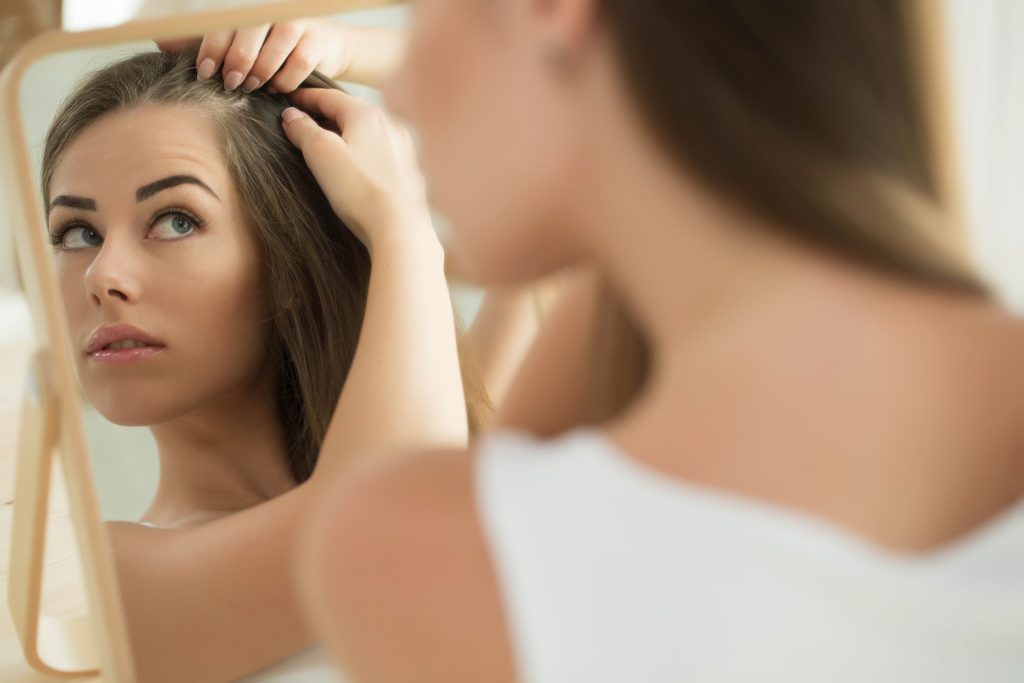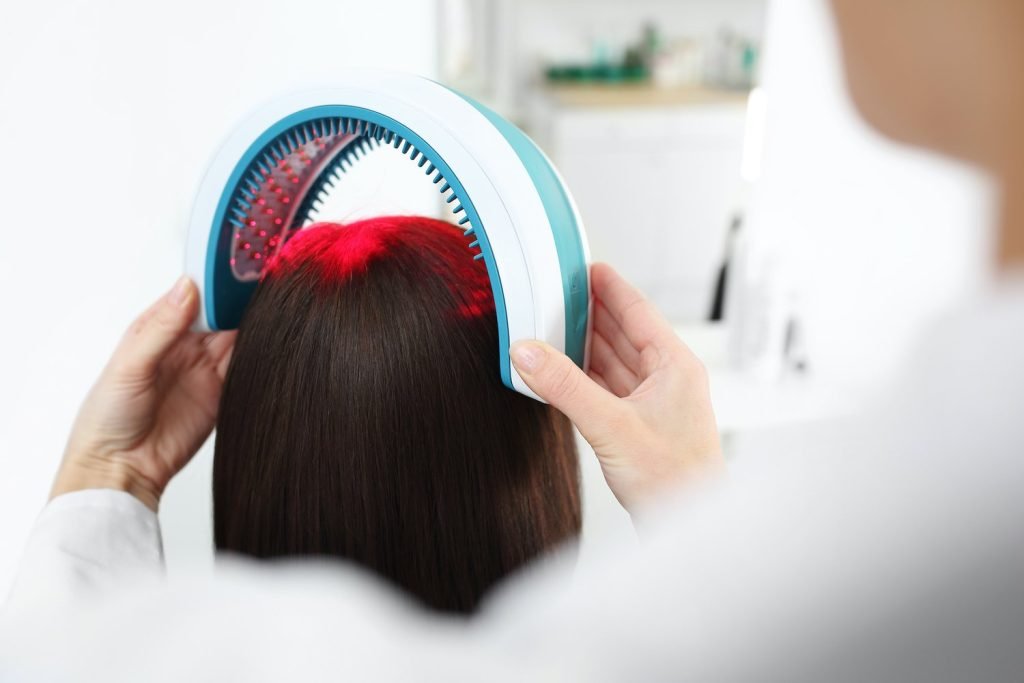- Hairline Clinic - Hair Loss Treatment in Akron and Cleveland Ohio - Schedule FREE Consultation
- 330.633.5225
- CONTACT US
Hormonal Imbalances and Hair Loss in Women
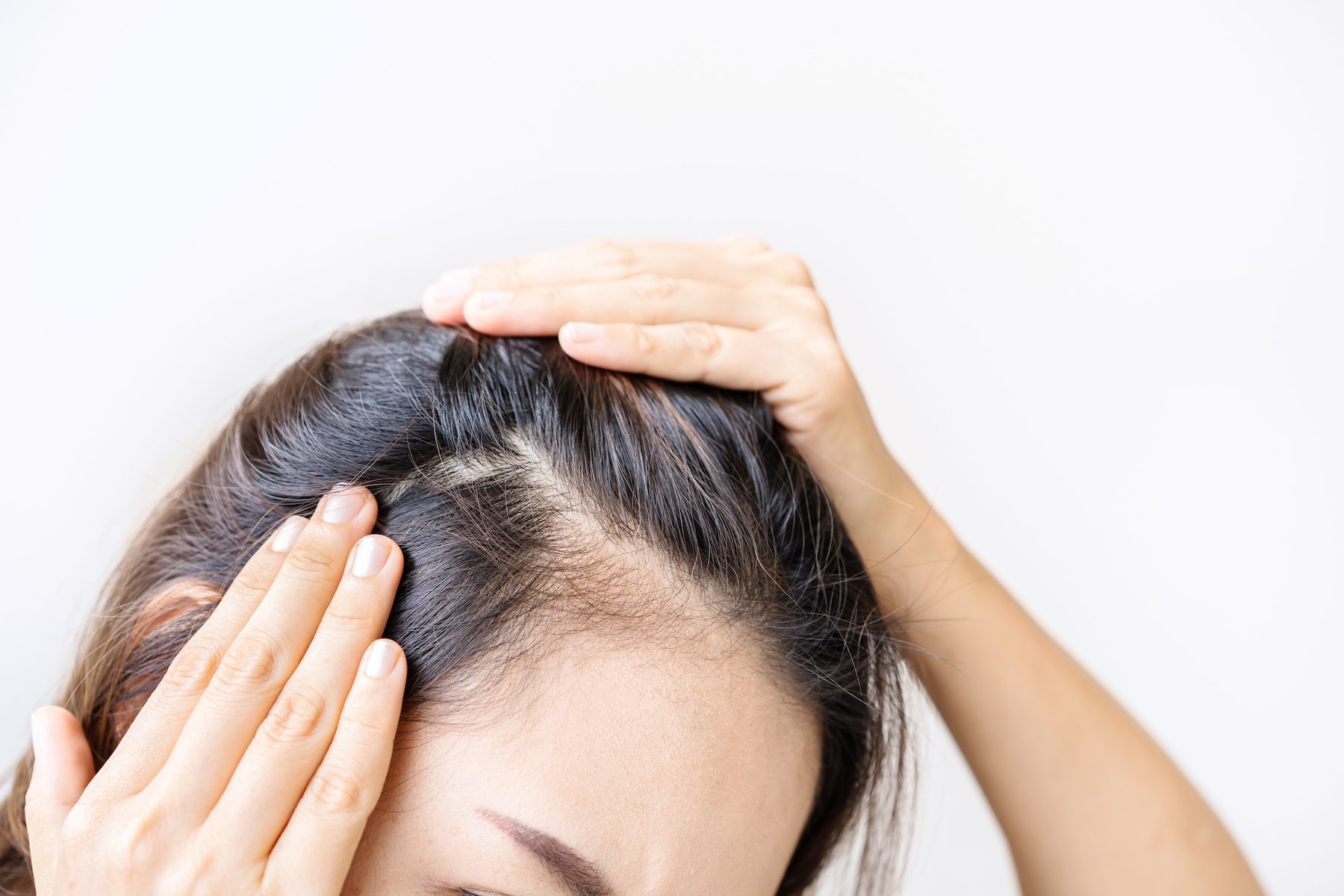
Human hormones and the organs they affect are fascinating. But several factors can throw them out of whack, particularly for women – and that may lead to hair loss.
Human hormones are systemic. This means they roam and reach the entire body, thanks to our very efficacious circulatory systems. But if ever there was a sign that those hormones are problematic in some way, it’s how they affect hair. This type of female hair loss isn’t treatable for the local hair loss treatment clinic that offers hair loss solutions for women. It’s a medical issue. Women might see those hair loss effects to an even greater degree than men.
For example, hirsutism – excess hair on women in places other than the scalp – can signal a number of things: polycystic ovaries, Cushing syndrome (from excess cortisol exposure), congenital adrenal hyperplasia (overproduction of steroid hormones in the adrenal glands), or tumors in the ovaries or adrenal glands (which is rare). The signs include loss of scalp hair, but conversely a noticeable increase in hair on the face, chest, lower abdomen, inner thighs, and back.
If men were to experience more hair in these parts of their bodies – as well as accompanying hair loss on the scalp – it would quite likely go unnoticed.
And several of these maladies are female-specific in the first place (e.g., anything having to do with ovaries). The most obvious example is when estrogen levels drop, as they do most markedly in menopause. Estrogen helps maintain hair growth as well as its thickness. In technical terms, a drop in estrogen shortens the growth phase (known as the anagen phase) of the hair growth cycle. This means the hair will only reach a shorter length before shedding.
When menopause-related estrogen levels drop, hair follicles shrink in size such that hair is finer and weaker. But there’s another hormonal matter that happens with menopause that affects hair as well. In some (not all) women, as estrogen levels drop male hormones (androgens, which include testosterone) rise proportionally – all having similar and deleterious effects on hair growth.
These hormonal changes are not universal. But they also tend to follow patterns, including the following:
Obesity. Women who are obese will have greater insulin resistance, i.e., be less sensitive to the effects of insulin, itself a hormone. In response, the pancreas produces greater amounts of insulin, which stimulates ovarian production of androgens in greater quantity. Adipose tissue (body fat) also generates androgens, while generalized and chronic inflammation associated with excess weight also increases ovarian production of androgens.
Family history. Each of the mechanisms associated with hirsutism tend to be congenital.
Nutrition. Hormone balance in women depends on certain nutrients. A diet that is high in processed foods and low in plant origins (fruits and vegetables) can affect insulin resistance and therefore increase androgen production. Other nutrients (protein, iron, biotin, vitamin D, and Omega-3 fatty acids) affect hair health, both in hormonal balances and the nutrients required for hair growth.
So, while some of these factors can be controlled, many cannot. It helps to understand which is which.
We provide hair loss solutions for women suffering from hair loss due to hormonal imbalances at our hair loss treatment clinics in Cleveland and Akron Ohio.
If you are a woman suffering from hair loss conditions due to hormonal imbalances, we provide industry-leading, individualized hair loss treatments and hair loss solutions to women in Cleveland and Akron, OH. Schedule a FREE confidential consultation and evaluation at our Akron Hair Loss Treatment Clinic or our Cleveland Hair Loss Treatment Clinic by calling 330.633.5225 today!
Hair Loss Treatments
Men's Hair Loss Solutions
Women's Hair Loss Solutions
Men's Hair Loss Solutions
Ready for change? Call our hair loss experts at (330) 633-5225 to schedule a FREE appointment.
HairLine Clinic is an industry leader providing individualized hair loss treatments to men and women experiencing hair loss in Akron and Cleveland, Ohio.


